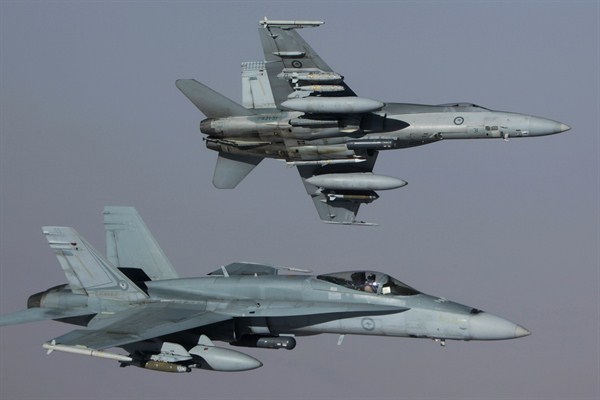Although far removed from Australia’s traditional areas of interest in Southeast Asia and the South Pacific, the Middle East continues to be a focus of Australian foreign policy and military strategy. But its own security interests in the region have nearly always been defined in terms of its security relationship with the United States. One of only four countries to have participated in the 2003 U.S.-led invasion of Iraq, Australia was more recently among the first countries to follow Washington’s lead in offering renewed military assistance to Iraq after the fall of Mosul to the self-proclaimed Islamic State in June 2014. Unlike Australian involvement in Iraq in 2003 and later from 2005 to 2009, however, there is a much more direct security relevance to Australia this time around.
Many Australians consider Islamic terrorism to be a real domestic threat, and the fighting in both Iraq and Syria has attracted a small but concerning numbers of Australians. More than 30 Australian nationals have been killed fighting for extremist groups in both countries, while roughly 120 are currently fighting there and another 170 Islamic State supporters are reportedly in Australia. More than 130 Australians have had their passports canceled or suspended, or been refused one on suspicion of joining or supporting jihadi groups in Iraq and Syria. Australia’s domestic security agency, the Australian Security Intelligence Organization (ASIO), has more than 400 current investigations underway—double that of a year ago. Two Muslim teenagers have been killed attacking police in separate terrorist incidents in Sydney and Melbourne in the past year.
As a consequence of all that, the Australian government has been able to convincingly make the domestic political case for the deployment of troops and aircraft to support the Iraqi government in the fight against the Islamic State. Australian policy in Iraq has been proportionate and relatively low risk—and, most of all, its aim is straightforward. But the rationale for the government’s decision last month to expand air strikes on the Islamic State to include targets in Syria, at Washington’s request, was much less clear.

